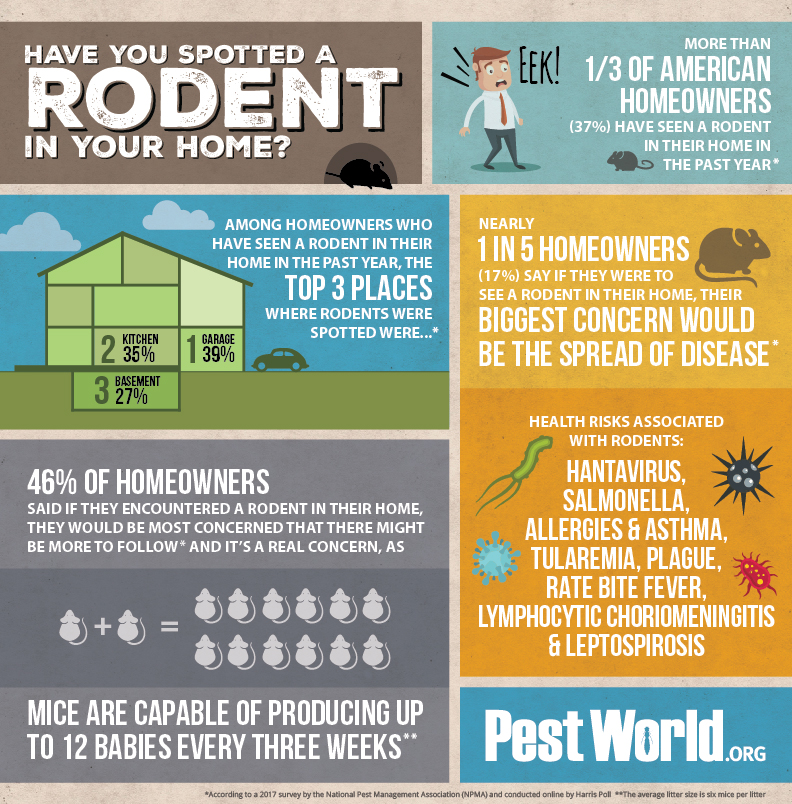The Duty Of Parasite Control In Food Security And Hygiene
The Duty Of Parasite Control In Food Security And Hygiene
Blog Article
Material Author-Franklin Johns
Are you aware of the concealed dangers that parasites posture to the security and hygiene of your food? From rodents to insects, these unwanted visitors can contaminate your active ingredients, surfaces, and storage space locations.
This short article checks out the vital duty of parasite control in keeping the highest requirements of food safety and hygiene. Discover efficient strategies and prevention actions that will certainly assist you protect your service, clients, and reputation.
Don't let pests compromise the top quality of your food.
The Effect of Pests on Food Safety And Security and Hygiene
In your kitchen, insects can have a significant effect on food safety and hygiene. These unwanted visitors, such as rodents, bugs, and cockroaches, can contaminate your food, surfaces, and tools with damaging microorganisms, viruses, and parasites. They can easily access your cupboard, cabinets, and also your refrigerator, leaving behind droppings, urine, and hair.
Not only can they spoil your food by eating through product packaging, yet they can likewise spread illness like Salmonella , E.coli, and Listeria. Picture preparing a meal for your family members, uninformed that the ingredients you're utilizing are already polluted.
It's critical to take immediate action to avoid and regulate pests in your kitchen area. Regular cleansing, appropriate food storage space, and professional pest control measures are essential to guarantee food security and maintain a sanitary environment in your kitchen area.
Reliable Pest Control Methods for the Food Sector
Applying reliable bug control approaches is critical for maintaining food safety and hygiene in the food industry. By applying these strategies, you can avoid bugs from contaminating the food and make certain that your products are safe for intake.
One reliable approach is to consistently check and check your center for signs of bug task. click this over here now includes checking for droppings, nests, or any kind of damage brought on by pests.
It's additionally crucial to secure all access points to stop insects from going into the center. Normal cleaning and sanitation are essential, as parasites are drawn in to food residue and spills.
Additionally, correct waste administration is critical to prevent the accumulation of food waste that can draw in parasites.
Preserving Health Specifications Through Parasite Avoidance Procedures
To maintain hygiene standards, you should regularly implement parasite avoidance steps. By taking aggressive steps to avoid parasites from entering your food establishment, you can make sure the safety and sanitation of your facilities. Here are some reliable bug prevention procedures to take into consideration:
- Seal all fractures and gaps: Bugs can enter through even the smallest openings. Consistently examine and secure any type of voids in doors, windows, walls, and floors to keep pests out.
- Correct waste administration: Get rid of food waste promptly and securely in sealed containers. This will lessen the attraction of insects and avoid infestations.
- Normal cleansing and sanitizing: Maintaining cleanliness in your establishment is essential. Routinely clean and sanitize all locations, paying unique interest to areas where bugs may hide or breed.
- Apply a tracking system: Routinely inspect your properties for indicators of insect activity. Mount pest surveillance gadgets, such as traps or sensing units, to identify and resolve any potential problems early.
Conclusion
So remember, when it involves food safety and security and hygiene, insect control plays an important duty.
By applying Regulatory compliance and safety nets, we can make certain the highest standards of cleanliness and safety in the food industry.
Don't let parasites compromise the high quality of our food; allow's stand together and safeguard our health and health.
